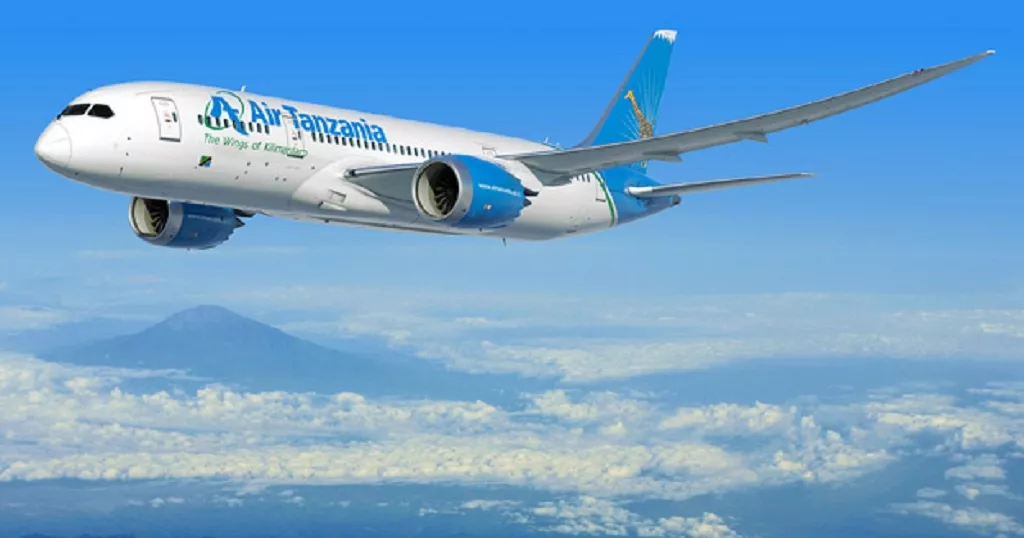EU Bans Air Tanzania from European Airspace Due to Safety Concerns
The European Commission has officially added Air Tanzania to the EU Air Safety List, effectively banning the airline from operating within European airspace. The decision, announced on December 16, 2024, follows safety concerns identified by the European Union Aviation Safety Agency (EASA), which also resulted in the denial of Air Tanzania’s Third Country Operator (TCO) authorisation.
Safety Concerns and Speculation
While the Commission did not specify the exact nature of the safety breaches, industry experts suggest that Air Tanzania may have violated airworthiness directives, possibly operating its Airbus A220 beyond scheduled major safety checks.
Apostolos Tzitzikostas, EU Commissioner for Sustainable Transport and Tourism, underscored the importance of safety in his remarks:
“The decision to include Air Tanzania in the EU Air Safety List underscores our unwavering commitment to ensuring the highest safety standards for passengers in Europe and worldwide.”
Tzitzikostas further urged Air Tanzania to take immediate action to address the safety deficiencies, offering the Commission’s assistance to Tanzanian aviation authorities in enhancing the carrier’s compliance with international standards.
Impact on Air Tanzania’s Operations
The ban is a significant blow to Air Tanzania’s expansion plans, particularly its efforts to operate flights to London using its Airbus A220 and other European destinations like Frankfurt and Athens served by its Boeing 787 Dreamliner.
The ripple effects of the ban have been immediate, with several airports, including regional hubs like Kigali, locking out the Tanzanian national carrier.
To maintain operations, Air Tanzania could consider wet leasing, an arrangement where an airline leases an aircraft complete with crew, fuel, and insurance from another certified carrier. The European Commission permits wet-leased flights, provided safety standards are met.
The EU Air Safety List
The EU Air Safety List is updated periodically to ensure passenger safety based on recommendations from the EU Air Safety Committee. The most recent revision, following a November 2024 meeting in Brussels, brought the total number of banned airlines to 129:
- 100 airlines certified in 15 countries with inadequate aviation oversight
- 29 individual airlines with significant safety deficiencies
In addition to Air Tanzania, the updated list includes:
- Air Zimbabwe (Zimbabwe)
- Avior Airlines (Venezuela)
- Iran Aseman Airlines (Iran)
Lessons from Pakistan International Airlines (PIA)
The Pakistan International Airlines (PIA) ban was lifted after a four-year suspension, demonstrating that sustained efforts to improve safety standards can yield results. The PIA and the Pakistan Civil Aviation Authority (PCAA) successfully addressed oversight deficiencies, leading to the airline’s clearance.
“This demonstrates that safety issues can be resolved through determination and cooperation,” Tzitzikostas remarked.
Additionally, Airblue Limited, another Pakistani airline, has received EASA’s TCO authorisation, signaling progress within the country’s aviation sector.
The Path Forward for Air Tanzania
Air Tanzania’s inclusion on the EU Air Safety List highlights systemic challenges within Tanzania’s aviation sector, including oversight by regulatory authorities. To regain access to European airspace, the carrier must:
- Address safety concerns raised by EASA.
- Implement rigorous reforms to align with ICAO international safety standards.
- Engage in reassessments to demonstrate compliance with EU requirements.
Tzitzikostas reaffirmed the EU’s willingness to reassess airlines that achieve compliance:
“Our goal is not to penalize but to ensure safety compliance globally.”
Conclusion
The ban on Air Tanzania serves as a wake-up call for the airline and Tanzania’s aviation authorities. Immediate, decisive reforms are essential to address safety concerns and restore confidence. As Air Tanzania works to regain certification, the carrier faces significant challenges but also an opportunity to demonstrate a renewed commitment to passenger safety and global standards.














